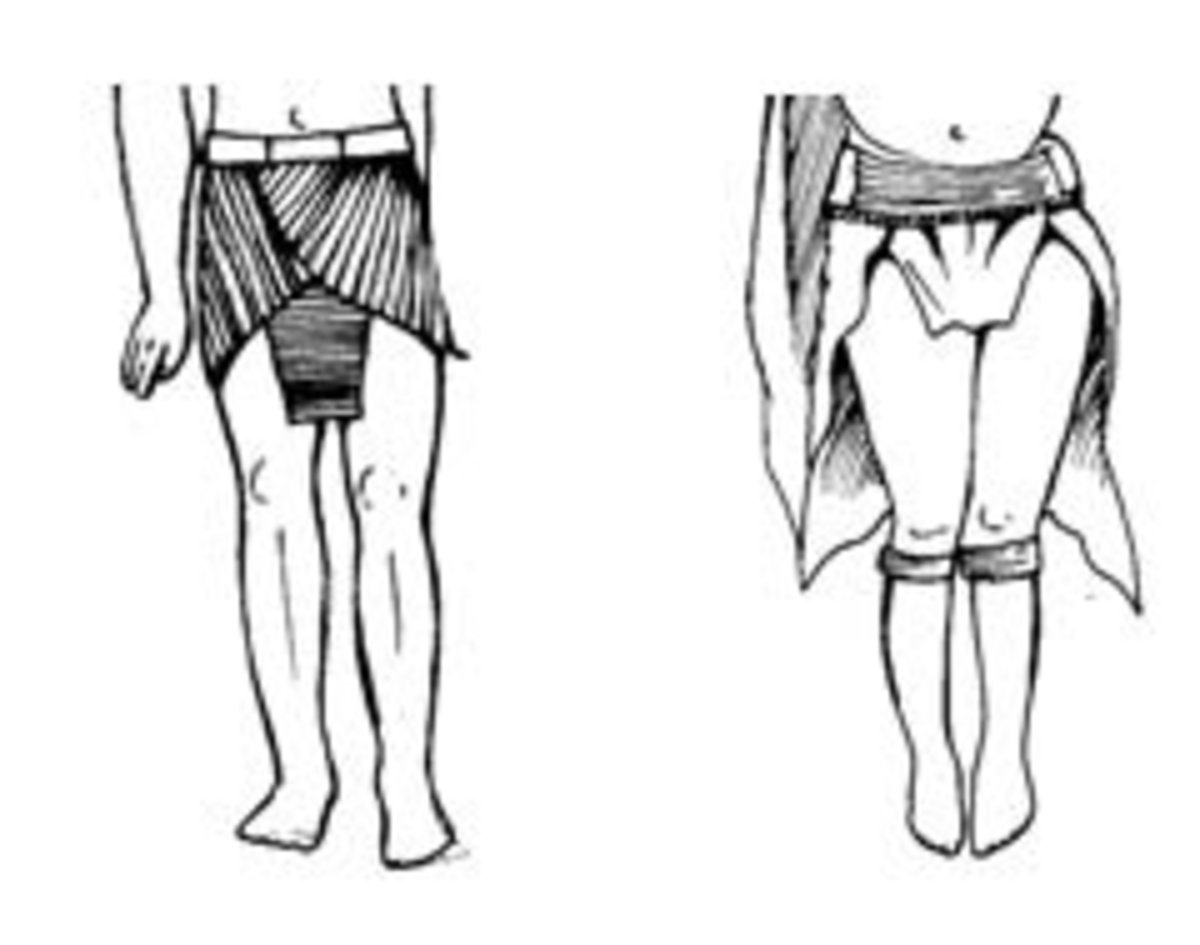When does a fetus become human?

When does human life begin?
I usually stay away from writing about abortion because it is a very hot button topic. We all have our opinions and seldom do I see a lot of logic in debates about it. But because a private member’s bill threatening to revisit the issue was recently tabled in Canadian Parliament, I decided to put in my two cents.
In the US abortion is an ongoing fight between prochoice and pro life. But in Canada there hasn’t been any real debate about it since the Supreme Court struck down our anti abortion laws as unconstitutional. Since then Canada is one of the few if not the only country in the world with no law about it whatsoever $6.
Some think that’s how it should be. Abortion is between a woman and her doctor. Others think abortion is murder, full stop. These two polar opposite ideas are the problem. Usually all or nothing opinions are the problem in any issue. But what issue is more divided than one in which one side views the other as murders, and the opposite side sees the others as wanting to impose their will on all woman and strip them of their rights to do what they will with their own bodies?
For 400 years now a fetus has had no rights at all under British law and is not considered to be a human being until the moment it is born. Still, anti abortion laws have existed for most of that time. Canada inherited that definition and many of those laws.
But isn’t ironic that on the one hand a fetus has not rights, but on the other, for most of the past 400 years abortion has been forbidden.
When does a fetus become a human being? There are many points in time that have been suggested. We could place the time at when there is a heartbeat, or when there is brain activity, or at conception. When does a fetus feel pain? When does it become aware? When do emotions begin? I’m sure there are other points we could start recognizing humanity at. But 400 years ago we picked live birth. Why?
It seems rational enough for the time and the politics. At the time there was little medicine could do to keep a premature baby alive. There were many miscarriages. Many died at birth from complications. The mothers will to carry to term was the only real chance a fetus had. If your mother didn’t want you even before birth, you were already lost and would likely end up a burden to society if she couldn’t find a way to abort.
Woman were not persons under the law in the 1700s so how could the unborn be fully human? To recognize a fetus as human and as a person at any stage of a pregnancy meant it would automatically have rights. In those days you just never knew the sex of the fetus until it was born; if it was born at all.
In the 1700s men still owned woman and children, and afforded them only the right to life under the laws of most countries, not only the UK. Men had the right to discipline and even kill their children and wives under certain circumstances. Supposed honor killings still take place today in Muslim countries as well as in Western countries that have a population of Muslims. We think it is a disgusting practice but not more than 200 years ago we were doing similarly horrendous things for the same reasons. Glad we changed our views.
Abortion and laws against it, forced or willing, are probably as old as our species. Ancient texts from as far back as 2000 BCE grapple with the issue. If a woman wanted to terminate a pregnancy there have always been ways she could do it. Laws against it have ranged from lax to stringent. In between, the practice was accepted.
Many suggest a fetus is not really human until 3 months of gestation. Some say as early as two months. Others claim 28 days. We categorize the stages of gestation like we categorize the life cycle of an insect. The first stage of pregnancy it’s a zygote. It’s just a few indistinguishable cells at that point. The zygote turns into an embryo after mitosis. It is not a fetus until it is 8 weeks along from conception. Then it is a fetus until live birth.
The question of when life begins is not the issue because every cell is alive. That means sperm and eggs are living things from the outset. The question is when does a group of cells become a human being with human rights?
To the Christians and no doubt some non-Christians: “every sperm is sacred”; as Monty Python put it. Masturbation could be considered murder by those standards. But we cut our fingernails and hair, which are also living cells containing all the DNA our sperm and eggs hold. Where is the limit?
Many people would agree that a zygote is not fully human. Still others would be willing to say an embryo is not human. Some have gone as far as to say an embryo is a parasite as it cannot survive without a host to feed off. An extreme analogy to say the least. A welcome parasite which most mothers are only too happy to accommodate; and which no parent thinks of as a parasite until at least the teen years. But not an inaccurate analogy.
It seems to be impossible to define at which moment a biological system becomes a human. Certainly we would use the term human zygote or human embryo to distinguish them from say a frog embryo. All zygotes are potential human beings from conception. But we cannot properly use the word child when talking about a fetus.
Our language even indicates how we view pregnancy. We don’t consider ourselves parents until our child is born. We celebrate our birthday, not our day of conception. Our tradition are that pregnancy and birth are different. When we come into the world we have made it. Before that is a journey not all of us can make.
The question then becomes: When does a fetus no longer rely on its mother for life itself? The answer is: when it’s born. But if we want to know the earliest time that it is possible a fetus might be able to survive on its own, that seems to be 6 to 7 months; but that’s pushing it. Survival at six months is not assured by any means, and neither is full development. By the time of live birth, the heart, lungs, brain and emotions would, of course, all have to be fairly well developed or survival would not be likely.
It seems to me that if a pregnancy must be terminated, the earlier the better is probably the best bet. Most jurisdictions that allow abortion set a three month limit. That seems to be the best we can do sorting out when an embryo or fetus is least like a human being, and least likely to suffer. I’d say less than two months would suit me better. But it doesn’t all end there. It’s a complex and messy issue. And thank goodness it isn’t up to me.
The big issue is the rights of the mother. She is human under the law and has rights. How can anyone dictate to another that they must carry to term? That once pregnant the fetus’s rights strip the woman of her right to do what she likes with her body? We are as much as telling woman that they are forced to allow a parasite to run its course.
Woman’s rights have come a long way and part of that fight for rights was control of their own bodies. The right to say no. Do men have anything to compare this with? Could we be forced to give up control of our bodies in anywhere near the same way? Not that I can think of. If a woman feels as if she is carrying a parasite it would be pure cruelty and mental torture to force her to comply and carry it to term
Rape victims spring to mind as potentially being of that mind set. A child could be a constant reminder of the violation she endured.
We know that when abortion is forbidden completely woman find ways to abort anyway due to desperation of many varieties. The consequences are often fatal for the woman. That’s yet another reason to give woman safe options and has been one of the reasons public opinion changed over the years, away from absolute prohibition.
If a fetus had rights then potentially every legitimate miscarriage would become a suspected homicide. Seventy five percent of fertilized eggs do not combine their DNA properly and fail without a woman even suspecting she was potentially pregnant. Potential miscarriages get less likely by the time the heart starts beating around 6 weeks, but the first three months are the most critical. 20 percent of all pregnancies end in miscarriage or stillbirth.
Imagine having to spend resources to investigate approximately half a million cases per year in the US alone? Most of them will end up being legitimate and we would be dragging 500,000 woman a year through criminal investigation while they greave their loss. Look at how many crib death incidents have led to investigations and even convictions of innocent people.
It seems that from a religious perspective god skims seventy five percent off the top when we aren’t looking, twenty percent off the rest right in front of us, and the remainder of us all in good time.
Then there are the father’s rights to consider. Or are there? Woman are no longer the property of men so cannot under law be forced to become what some woman regarded as baby factories. The church’s rule has subsided and woman no longer feel obligated to have 16 kids; like many families in Canada had when I was growing up.
Since men cannot even possibly care for or carry and nurture the fetus before it is born, and have no way of knowing about or preventing a problem in birth or development, they really have no say before the fetus becomes a child.
Woman do not have to bow to pressure to have or to abort at a man’s wishes or whims. After birth, of course, a man has rights and obligations to his offspring.
Not entirely fair? No… but it’s complicated isn’t it? If you give men rights before birth you do so by taking rights from woman. A man might not want the child but be held responsible for it by law. On the other hand he may want the child, and if his rights trump that of a woman, force her to endure a pregnancy she doesn’t want for whatever reason. Or if he does not want it, force her to abort.
The Supreme Court of Canada in its decision on the constitutionality of Canada’s abortion law ruled: “State interference with bodily integrity and serious state-imposed psychological stress, at least in the criminal law context, constitutes a breach of security of the person. Section 251 clearly interferes with a woman's physical and bodily integrity. Forcing a woman, by threat of criminal sanction, to carry a foetus to term unless she meets certain criteria unrelated to her own priorities and aspirations, is a profound interference with a woman's body and thus an infringement of security of the person.”
Thus Canada has been without any abortion law at all since 1988. Appeal was granted by the courts but was not challenged. Even now when Canada has a conservative government, the PM understands that opening this can of worms is political suicide. Every government since the ruling has understood it. And perhaps that’s a good thing after all. Perhaps government shouldn’t get involved in this issue.
On a related note: It amazes me that in the US where most fundamentalist Christians are conservatives who believe in less interference in our lives from government they run to legal solutions to try to force their beliefs on everyone. Just a thought.
If not in the hands of government, whose hands are, or should, the abortion issue be in? Should doctors take things in hand and decide whether or when they will perform abortions? They have that right. Doctors will perform abortions or not according to their conscience. As it turns out, Canadian doctors do not do late term abortions over 5 months unless the woman’s health is at risk. But is it up to doctors to make choices for woman? Clearly it isn’t.
Science still can’t definitively answer the question of exactly when a foetus becomes a human. Philosophy has no definitive objective answer and neither do law makers or the courts. Perhaps there is no objective answer because it’s a subjective question? So perhaps those law makers of 400 years ago who determined that a foetus was not a human being under the law weren’t all that wrong in their decision. Notice the term “under the law”.
When a child is born it becomes fully human with full human rights. But while it is in the womb its mother bestows any rights she sees fit on it, including none at all. That’s nature’s way. Humans are the only animal that feels it has the right to interfere with this process. Clearly without the mother the foetus cannot survive; unless we plan on removing unwanted foetus’s and producing artificial wombs for them there isn’t a lot we can do. Nature may produce a perfect child in the end or a child with physical or mental issues; or more often than we even know it may self abort the process at any time. We still can’t know for sure until it is born. In a way it is like Schrodinger’s cat, in a state of superposition until it is born.
So how can we give rights to a potential being? Everything depends on it being born. You can’t welcome someone to your house before they arrive.
Woman by and large don’t take any of this lightly. 90 percent of all abortions in Canada are done before the end of the first three months. Long wait times are more to blame for the majority of the other ten percent than anything else. There will always be those who use abortion like birth control, but they are the small minority. Anything we do or create has potential for being used responsibly or irresponsibly. The vast majority of Canadian woman seem to use their rights responsibly.
Doctors play a large part in education and setting guidelines and standards for their own behaviour. Perhaps if we talk about the issues we can convince even more people to think carefully about what they are doing.
I am pro choice but I am also pro life. I would never council anyone to have an abortion. But I am glad the option is there if it is needed. If things in Canada were different, or I was living in the US, I would say that I think certain standards can be set without trampling woman’s rights: such as abolishing late term abortions. By the time a foetus is 6 months old it has a shot at living without it’s mother. We could, had we the will, birth those foetus’s and make the babies wards of the state. However there are legal obstacles to doing that as well. For one thing it would have to be done with consent.
If it were up to me I would suggest that anyone having an abortion do it as soon after they know they are pregnant as they can. And if it is late in the process seriously consider other options. Contrary to popular belief: Most people who are pro choice are not pro late term abortion.
Pro choice advocates everywhere like to see guidelines. As it turns out not many of us can advocate late term abortions, and neither can the vast majority of doctors. But perhaps we don’t need government to legislate them.
It’s been over 20 years since we have had no abortion law at all in Canada and the moral sky has not fallen. Abortion has been decreasing from 20 in a thousand when this experiment began, to 15.1 in a thousand as of 2008. The rate has been dropping a bit every year.
Doctors are being responsible in their conduct setting their own guidelines based on science. Women are better educated about the issues than ever before in history. What do we need legislation for?
Most of us would like nothing more than if humans were evolved enough to never abuse or take their rights for granted. Legislating behaviour doesn’t always work. At best it’s a desperate measure. We have seen the results of prohibition and the drug wars. Both were absolute failures that have done and do more harm than good. Humanity has to grapple with its issues on its own. Letting governments always decide what rights we have and which we don’t, even if we think we do, will only slow our progress. Education is the answer. I think Canada is a good example of what can be achieved among the people themselves if they are free to do so.
In some ways the public governs itself anyway. That’s what upbringing, education, culture and tradition do.
The thing about rights is: you never have to use them. If you need to, they are there. Having the right to abortion doesn’t force anyone to have one.
Canada’s constitution, and in particular the Charter of Rights and Freedoms, has served to take away the government’s power to deny us rights on more than one occasion now. It has struck down anti gay laws and anti gay marriage laws. It has struck down abortion laws, and recently it struck down some of our laws concerning prostitution.
It seems to be telling us to recognize everyone’s rights and act according to our own conscious when it comes to our own private lives. Perhaps we should give that a try, and see if we can build a fair and just society after all.




